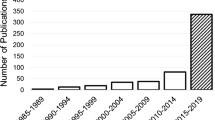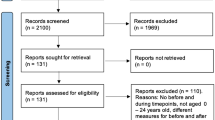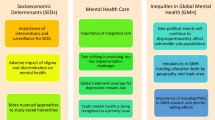Objectives. To study the impact of COVID-19 on the occurrence and course of mental illness in hospitalized elderly patients. Materials and methods. We examined 67 hospitalized patients aged 50–95 years with various mental pathologies diagnosed using ICD-10 criteria who had COVID-19 from February 2020 to December 2021. Of these, 46 patients were previously mentally ill, while 21 experienced first-onset mental disorders. Results. The group of first-onset cases was dominated by depressive episodes (F32) (42.9%), including psychotic episodes (9.5%). Organic disorders were diagnosed in 28.6% of cases, in the form of emotional lability (F06.6), organic depression (F06.3), mild cognitive impairment (F06.7), and somatogenic delirium (F05.86). Neurotic disorders were observed in 23.8% of patients, in the form of depressive reactions (F43) and panic (F41.0) and generalized (F41.1) anxiety disorders. Acute polymorphic psychosis with symptoms of schizophrenia was diagnosed (F23.1) in one case (4.8%). Diagnoses in the group of patients with previous mental illness were: affective disorders (F31, F32, F33) in 45.7%; organic disorders, including dementia (F06.3, F06.7, F00.1, F00.2) in 26.1%; schizophrenia spectrum disorders (F25, F21, F22, F20.01) in 19.6%; and neurotic somatoform disorders (F45) in 8.7%. In the acute and subacute periods of COVID-19 (≤3 months), the two groups of patients developed acute psychotic states (APS) in the form of delirium, psychotic depression, or polymorphic psychosis, in 23.3 and 30.4% of cases respectively. APS were more common in previously mentally ill patients with organic (50%) and schizophrenic (33.3%) spectrum disorders with a predominance of delirium. In the longer-term (>3 months) period of COVID-19, previously mentally ill patients also showed more frequent (60.9% and 38.1%) development of cognitive impairment (CI), especially in schizophrenic (77.8%) and organic (83.3%) disorders. CI developed twice as often after APS (89.5% and 39.6%, p < 0.001), reaching the level of dementia in 15.8% of cases. APS displayed significant associations (p < 0.05) with the development of CI (0.567733), patients’ age (0.410696), and the presence of cerebrovascular insufficiency (0.404916). Conclusions. Age-related features of the mental sequelae of COVID-19 included the occurrence of acute psychosis in the acute period of infection and deterioration of cognitive activity in the longer-term stage. Patients who already had disorders of the organic and schizophrenic spectra were more vulnerable to the effects of COVID-19. In this group, the occurrence of APS was a risk factor for the development of dementia, while in newly ill, affective, and neurotic patients, CI were reversible or amounted to mild cognitive disorder.
Similar content being viewed by others
References
A. Achar and C. Ghosh, “COVID-19-associated neurological disorders: The potential route of CNS invasion and blood–brain barrier relevance,” Cells, 9, No. 11, 2360 (2020).
A. Yu. Nikitina, A. Sh. Chimagomedova, and O. S. Levin, “Neurological signs of COVID-19 in the elderly,” Zh. Nevrol. Psikhiatr., 121, 10, No. 2, 5–15 (2021).
S. Rege, “COVID-19 and the brain – pathogenesis and neuropsychiatric manifestations of SARS-CoV-2,” CNS Involvement, 12, 23–29 (2020).
S. N. Mosolov, “ Long-term mental disorders after acute coronavirus infection with SARS-CoV-2,” Sovrem. Ter. Psikhich. Rasstr., No. 3, 2–23 (2021).
A. Nalbandian, K. Sehgal, Gupta, et al., “Post-acute COVID-19 syndrome,” Nat. Med., 27, 601–615 (2021).
J. Rogers, E. Chesney, D. Oliver, et al., “Psychiatric and neuropsychiatric presentations associated with severe coronavirus infections: a systematic review and meta-analysis with comparison to the COVID-19 pandemic,” Lancet Psychiatry, 7, No. 7, 611–627 (2020).
A. B. Docherty, E. M. Harrison, C. A. Green, et al., “Features of 20 133 UK patients in hospital with COVID-19 using the ISARIC WHO Clinical Characterisation Protocol: prospective observational cohort study,” BMJ, 369, m1985 (2020).
A. Varatharaj, N. Thomas, M. Ellul, et al., “Neurological and neuropsychiatric complications of COVID-19 in 153 patients: a UK-wide surveillance study,” Lancet Psychiatry, 7, No. 10, 875–882 (2020).
A. Mendes, F. R. Herrmann, S. Perivier, et al., “Delirium in older patients with COVID-19: prevalence, risk factors and clinical relevance,” J. Gerontol. A Biol. Sci. Med. Sci., 76, No. 8, 142–146 (2021).
R. Pranata, I. Huang, M. Lim, et al., “Delirium and mortality in coronavirus disease 2019 (COVID-19) – a systematic review and meta-analysis,” Arch. Gerontol. Geriatr., 95, 104388 (2021).
E. Brown, R. Gray, S. Lo Monaco, et al., “The potential impact of COVID-19 on psychosis: a rapid review of contemporary epidemic and pandemic research,” Schizophr. Res., 222, 79–87 (2020).
S. J. Ferrando, L. Klepacz, S. Lynch, et al., “COVID-19 psychosis: A potential new neuropsychiatric condition triggered by novel coronavirus infection and the infl ammatory response?” Psychosomatics, 61, 551–555 (2020).
J. Helms, S. Kremer, H. Merdji, et al., “Delirium and encephalopathy in severe COVID-19: a cohort analysis of ICU patients,” Crit. Care, 24, No. 1, 1–11 (2020).
Z. Varga, A. J. Flammer, P. Steiger, et al., “Endothelial cell infection and endotheliitis in COVID-19,” Lancet, 395, 1417–1418 (2020).
N. Poyiadji, G. Shahin, D. Noujaim, et al., “COVID-19-associated acute hemorrhagic necrotizing encephalopathy: imaging features,” Radiology, 296, No. 2, 119–120 (2020).
T. E. Poloni, A. F. Carlos, M. Cairati, et al., “Prevalence and prognostic value of Delirium as the initial presentation of COVID-19 in the elderly with dementia: an Italian retrospective study,” EClinical Medicine, 26, 100490 (2020).
A. Bianchetti, R. Rozzini, F. Guerini, et al., “Clinical presentation of COVID19 in dementia patients,” J. Nutr. Health Aging, 24, No. 6, 560–562 (2020).
Y. Alnefeesi, A. Siegel, L. Lui, et al., “Impact of SARS CoV-2 infection on cognitive functions: A systematic review,” Front. Psychiatry, 11, 1629 (2020).
F. B. Garcez, M. J. R. Aliberti, P. C. E. Poco, et al., “Delirium and adverse outcomes in hospitalized patients with COVID-19,” J. Am. Geriatr. Soc., 68, No. 11, 2440–2446 (2020).
K. Liu, Y. Chen, R. Lin, and K. Han, “Clinical features of COVID-19 in elderly patients: a comparison with young and middle-aged patients,” J. Infect., 80, No. 6, 14–18 (2020).
C. Annweiler, G. Sacco, N. Salles, et al., “National French survey of coronavirus disease (COVID-19) symptoms in people aged 70 and over,” Clin. Infect. Dis., 72, No. 3, 490–494 (2021).
M. F. Forget, S. Del Degan, J. Leblanc, et al., “Delirium and inflammation in older adults hospitalized for COVID-19: A cohort study,” Clin. Interv. Aging, 16, 1223–1230 (2021).
T. Goldberg, C. Chen, Y. Wang, et al., “Association of delirium with long-term cognitive decline: Meta-analysis,” JAMA Neurol., 77, No. 11, 1373–1381 (2020).
Author information
Authors and Affiliations
Corresponding author
Additional information
Translated from Zhurnal Nevrologii i Psikhiatrii imeni S. S. Korsakova, Vol. 123, No. 5, pp. 131–138, May, 2023.
Rights and permissions
Springer Nature or its licensor (e.g. a society or other partner) holds exclusive rights to this article under a publishing agreement with the author(s) or other rightsholder(s); author self-archiving of the accepted manuscript version of this article is solely governed by the terms of such publishing agreement and applicable law.
About this article
Cite this article
Yakovleva, O.B., Safarova, T.P. & Tsvetaeva, D.A. Effects of the COVID-19 Pandemic on the Occurrence and Course of Mental Disorders in Elderly People. Neurosci Behav Physi 53, 1483–1490 (2023). https://doi.org/10.1007/s11055-023-01542-1
Received:
Accepted:
Published:
Issue Date:
DOI: https://doi.org/10.1007/s11055-023-01542-1




